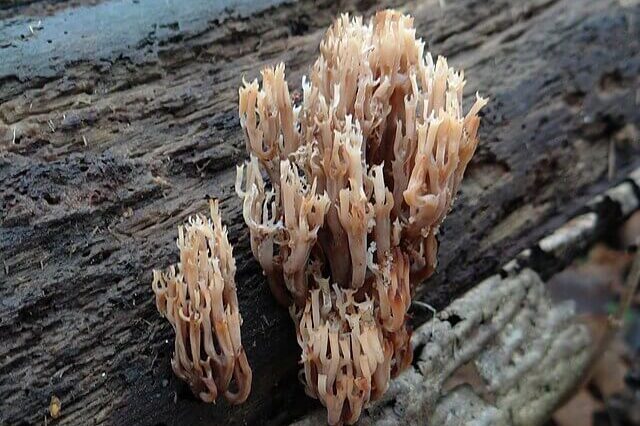
In Kent, an unusual species of fungus, Artomyces pyxidatus, commonly known as candelabra coral, has resurfaced.
Ecologist Rhianna Dix discovered this rare specimen during an exploration in Addington, while a volunteer from Kent Wildlife Trust had previously documented it in Hothfield Heathlands, Ashford, in 2021.
Recognised for its crown-like tips, the fungus was believed to be extinct in the UK until recent sightings.
The rediscovery occurred near West Malling when Dix and Mike Green from the London Fungus Network encountered the fungus growing on a tree stump in Addington.
“I didn’t recognise it at first,” he said. “I had two replies telling me it was the rare species.”
Previously absent from records in the 20th century, this species reappeared in the UK in 2012 in Suffolk.
The fungus, typically found in North America on decaying wood, raises questions about its presence in Kent, described as “a bit of a mystery” by Natasha Aidinyantz from Kent Wildlife Trust.
She said: “It’s always exciting to find a rare and unusual plant, animal or fungus in your home county, but what makes this particularly interesting is that we seem to have a pattern of distribution building in the east of England, starting in East Anglia and then making its way down to Kent and Sussex.
“But it just goes to show that nature doesn’t play by our rules, and that’s very much what is so beautiful about it.”
To further understand and document the rare find, the recent observation has been submitted to iRecord, and a sample has been sent to the Fungarium at the Royal Botanic Gardens, Kew.
The emergence of the candelabra coral fungus in Kent adds a fascinating dimension to the study of fungi and biodiversity in the region.
——————————————————————————
At Natural World Fund, we are passionate about stopping the decline in our wildlife.
The decline in our wildlife is shocking and frightening. Without much more support, many of the animals we know and love will continue in their decline towards extinction.
When you help to restore a patch of degraded land through rewilding to forests, meadows, or wetlands, you have a massive impact on the biodiversity at a local level. You give animals a home and food that they otherwise would not have had, and it has a positive snowball effect on the food chain.
We are convinced that this is much better for the UK than growing lots of fast-growing coniferous trees, solely to remove carbon, that don’t actually help our animals to thrive.
This is why we stand for restoring nature in the UK through responsible rewilding. For us, it is the right thing to do. Let’s do what’s right for nature!
Donate today at https://naturalworldfund.com/ and join in the solution!

